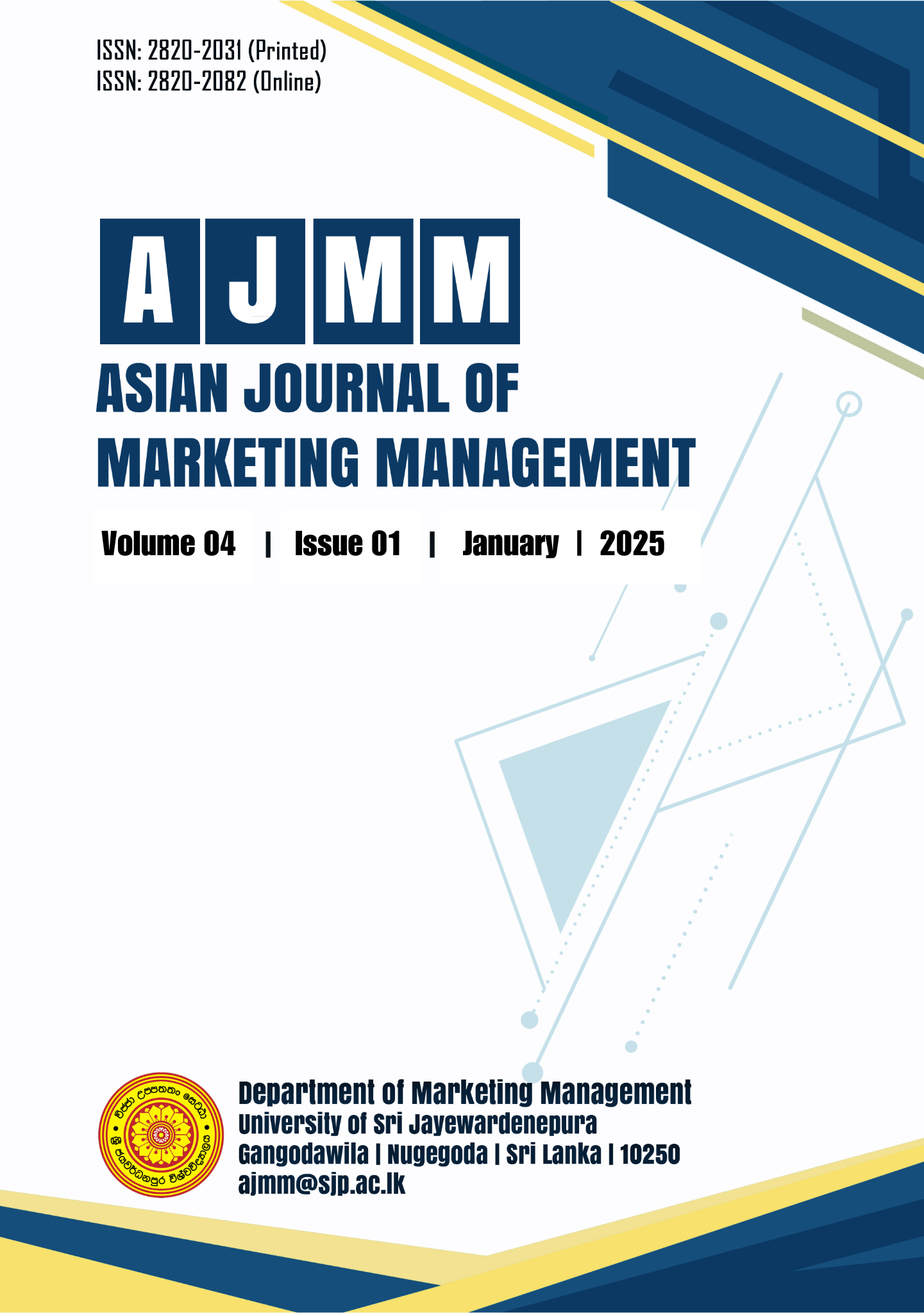The Influence of Gratifications Related to User-Generated Content on the Purchase Intention of Clothing of Young Consumers in Sri Lanka
DOI:
https://doi.org/10.31357/ajmm.v4i1.7751Abstract
Purpose: This study examines the influence of user-generated content (UGC) on the purchase intentions of young consumers in Sri Lanka’s online clothing market. With the rise of Web 2.0 and social media, consumer behavior is increasingly shaped by interactive content. The study explores how UGC impacts consumers' intentions by fulfilling various gratification needs, such as content, social relations, and self-presentation, within the digital landscape.
Design/methodology/approach: Adopting a positivist paradigm and a deductive research approach, this study employed a quantitative survey methodology. Data were gathered using self-administered online questionnaires from 250 young Sri Lankan consumers, aged 15 to 29, who used online platforms to purchase clothing. A purposive sampling technique was applied to ensure the sample's relevance to the research objectives. The collected data were analyzed using regression analysis to examine the relationship between user-generated content (UGC) and consumer purchase intentions.
Findings: Results indicate that UGC positively influences purchase intention among young consumers through utilitarian and hedonic content gratification. Social relation gratification, including trust and homophily on platforms like Facebook, enhances consumer purchase intention by fostering community and in-group acceptance. Additionally, self-presentation gratification encourages purchase behavior by allowing consumers to project their desired identities and values through social media engagement.
Originality: This study contributes to the limited research on UGC’s direct impact on purchase intentions within the clothing industry in Sri Lanka. It expands existing theories by applying the uses and gratifications theory to the online shopping context, offering insights into the specific types of gratifications that drive young consumers’ purchasing decisions.
Implications: The findings provide valuable insights for clothing brands and digital marketers in Sri Lanka. By focusing on the utilitarian, hedonic, and relational aspects of UGC, brands can better tailor their social media strategies to engage young consumers effectively. This research emphasizes the importance of creating social media content that resonates with consumers’ functional and identity-driven needs to enhance purchase intentions.





